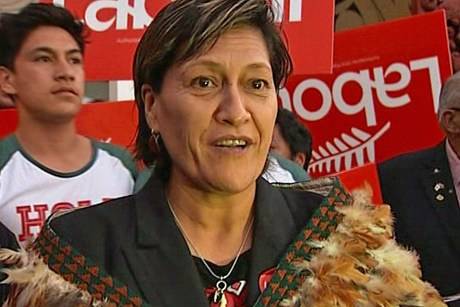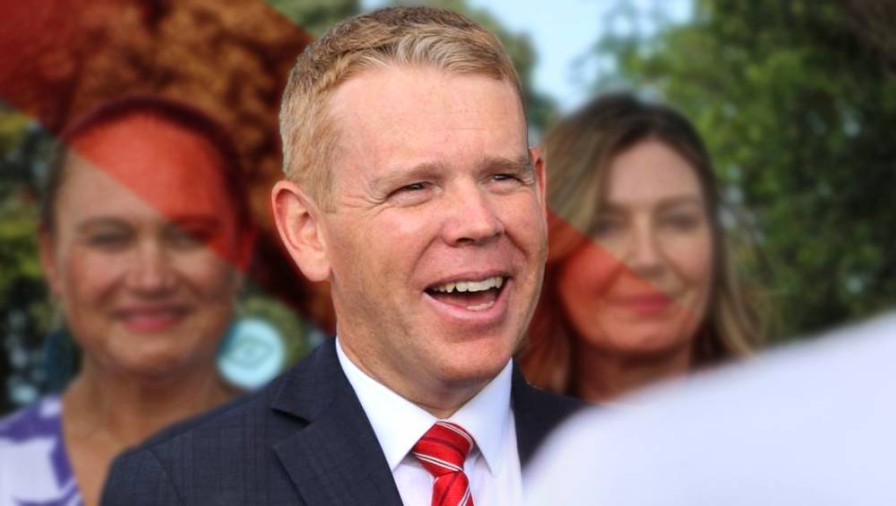Speaker’s embarrassment, dawn raids, looming recession
ANALYSIS: Convoluted reasons why Meka Whaitiri can remain in Parliament despite quitting Labour.
NBR political editor Brent Edwards speaks with Grant Walker.
ANALYSIS: Convoluted reasons why Meka Whaitiri can remain in Parliament despite quitting Labour.
NBR political editor Brent Edwards speaks with Grant Walker.
Pity the poor Speaker, Adrian Rurawhe.
Following Meka Whaitiri’s resignation as a Labour, MP Rurawhe has had to do an impossible juggling act in explaining why, under the legislation, she did not have to resign from Parliament.
For lay people and legal experts, the law seems pretty clear: if you resign from the party you represented when you were elected to Parliament, then your seat becomes vacant or, in the case of a list MP, your place on the party list. However, to do that you must resign from Parliament. It is not good enough you go around telling people you have resigned from the party. Instead, Parliament’s Speaker needs to get a clear message from the MP stating they have left their party to trigger the law.
In this case, Rurawhe says he had had no such clear letter from Whaitiri. She has simply informed him that she has withdrawn her vote from Labour and would like to sit next to Te Paati Māori MPs Rawiri Waititi and Debbie Ngarewa-Packer.

Meka Whaitiri has jumped ship from Labour to Te Paati Māori.
Is it a nonsense? Of course it is, but it appears to be following the letter of the Electoral (Integrity) Amendment Act, better known as New Zealand First’s waka jumping legislation.
The Speaker’s decision not to declare Whaitiri no longer an MP has bemused Opposition MPs, who valiantly quizzed him on the decision over two days this week. For his part, Rurawhe looked distinctly uncomfortable, embarrassed even, and clearly wanted to be anywhere but in the debating chamber.
Victoria University law lecturer Eddie Clark tweeted some sympathy for the Speaker.
“In being silent since her first announcement, Ms Whaitiri has also left her former Labour Māori caucus colleague, the Speaker, in a position that leaves him almost unavoidably defending the farcical in a kind of humiliating way,” Clark tweeted.
But he accepted that Whaitiri’s message to Rurawhe – which has not been made public – must have been carefully worded.
“The onus is on Ms Whaitiri to explain why she is saying different things to her constituents about what she has done to that which she in fact did in her note to the Speaker,” Clark said.
Yet we are unlikely to get that explanation, just as Whaitiri has not fully explained why she jumped ship this close to the next election.
She made the announcement as Prime Minister Chris Hipkins was in London and neither he nor any of his Labour colleagues apparently had any forewarning about what she was doing. Even now, communication from her appears muted, with Labour MPs – including members of the Māori caucus – still mystified by her defection.

Prime Minister Chris Hipkins was given no warning about Whaitiri’s resignation.
Some have called the defection a master stroke by Te Paati Māori, or even a game changer. Maybe. But it could also be a mistake.
If Whaitiri retains her Ikaroa-Rawhiti seat under Te Paati Māori’s flag at the election, and its co-leader Rawiri Waititi holds his Waiariki seat but the party only gets the same party vote, then that might topple fellow co-leader Debbie Ngarewa-Packer out of Parliament unless she too wins the seat of Te Tai Hauauru. That seat is ironically enough held by the Speaker, although he is standing as a list-only candidate this election.
But if, as expected, Te Paati Māori’s party vote goes up, its presence in Parliament will be strengthened, particularly if it can add another couple of Māori electorate seats to the one Waititi already holds.
Labour, while clearly caught on the hop by Whaitiri’s decision, has been measured in its response. It could invoke the waka jumping legislation and have her turfed out of Parliament but that could lead to an uncomfortable by-election campaign and also sour relations with Te Paati Māori. On current polling, it will likely need that party’s support to form the next government.
While Labour MPs are likely angered by what some will see as Whaitiri’s duplicity, they will not want to undermine whatever chance they might have to win a third consecutive term in power.

Labour will likely depend on Te Paati Māori support to govern for third consecutive term.
Just how it works out will depend on how voters – particularly in Ikaroa-Rawhiti – see Whaitiri’s move. In a column in Wellington’s The Post Victoria University law lecturer and Māori politics commentator Morgan Godfery says if the idea that her move was “careerist” takes hold, then she is almost certainly finished.
“Everyone prefers a selfless representative than a selfish one,” Godfery writes.
But in order to ensure her move is seen as selfless – and Whaitiri has given up a ministerial position – she might have to more stridently explain her reasons for leaving Labour, which might mean attacking her former party more strongly over its failure to deliver on Māori initiatives. All that carries risk.
The other thing to consider for the broader centre-left is that the whole thing looks messy and ugly, a far cry from the sort of perception Labour wants voters to have as the election gets ever closer.
Hipkins will come back next week from the coronation of King Charles lll, hoping this is the last surprise he gets before October 14.
What the announcement did do was largely take the focus away from other political stories of the week. The Government had been criticised for its changes to the clean car discount, which discounted some hybrids and put the focus more squarely on electric vehicles while also raising the charges on those driving utes and other gas guzzling vehicles. Act Party leader David Seymour said the move proved Labour did not care about working New Zealanders doing it tough.

The Government has changed the clean car discount to put more focus on electric vehicles.
NBR presenter Grant Walker wonders whether people who used to vote Labour would now vote for someone else. But it is likely those upset by the latest announcement were always going to be voting for some other party.
Immigration New Zealand embarrassed the Government when it became known the department was engaging in dawn raids less than two years after the Government apologised for the dawn raids of the 1970s. The department said it only conducted a very few operations outside normal hours, but the news prompted Immigration Minister Michael Wood to make it very clear the practice should only happen in extreme circumstances.
Acting Prime Minister Carmel Sepuloni said the only justifiable reason for conducting dawn raids would be in cases where there were threats to public safety.
Meanwhile, recession is still looming, and National Party deputy leader and finance spokesperson Nicola Willis expects a hard winter ahead as households struggle with rising costs and rising interest rates. She remains confident about the medium-term future, but only if the right policies are put in place.
For the Government, the next few months might present some tough challenges and if voters head into the election campaign still feeling despondent about their personal circumstances, that will likely be reflected in the vote.
It makes the Budget in two weeks’ time all that more important. But how does the Government turn what Hipkins says will be a “no-frills” Budget into something that might give people reason to be more optimistic?
Brent Edwards is NBR’s political editor.
Sign up to get the latest stories and insights delivered to your inbox – free, every day.